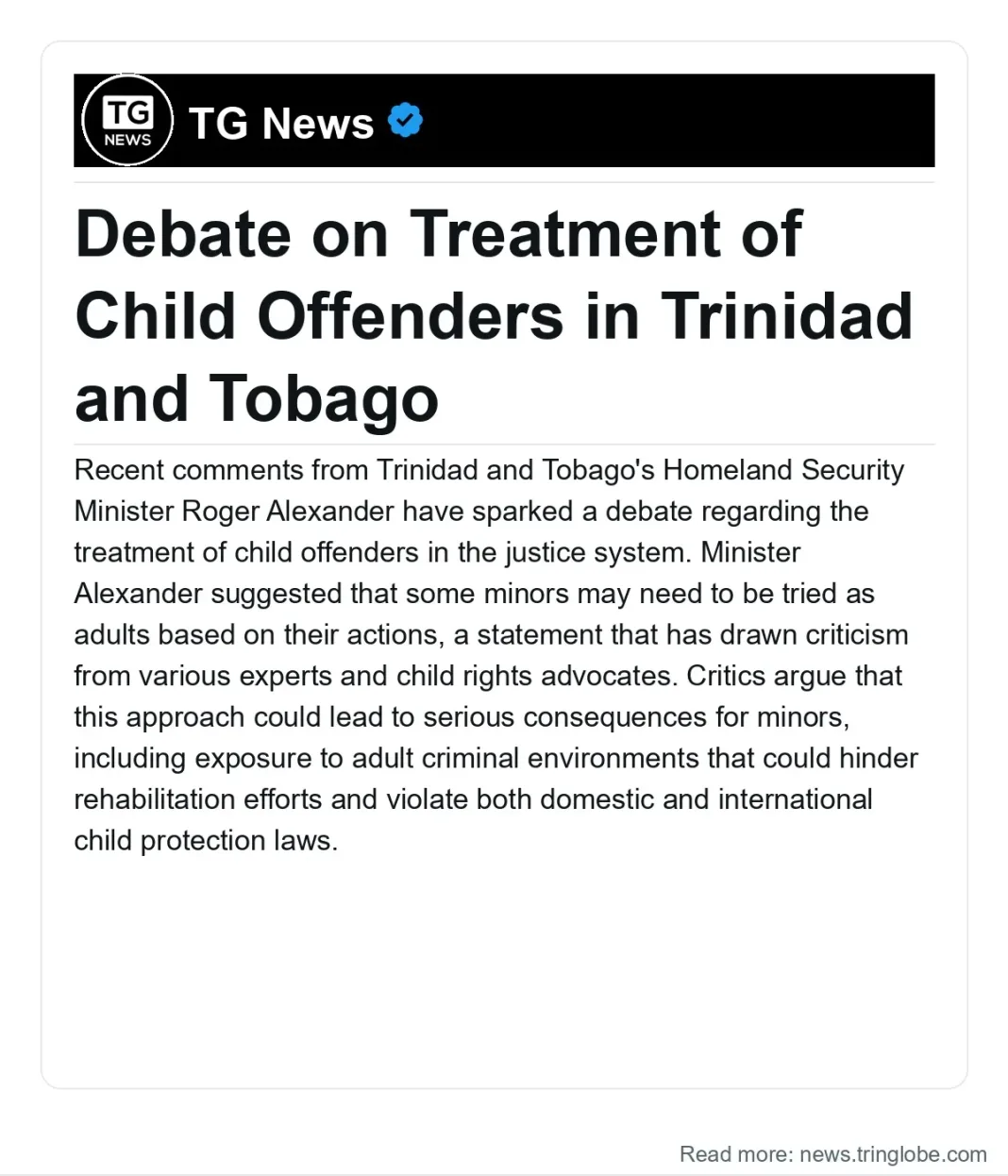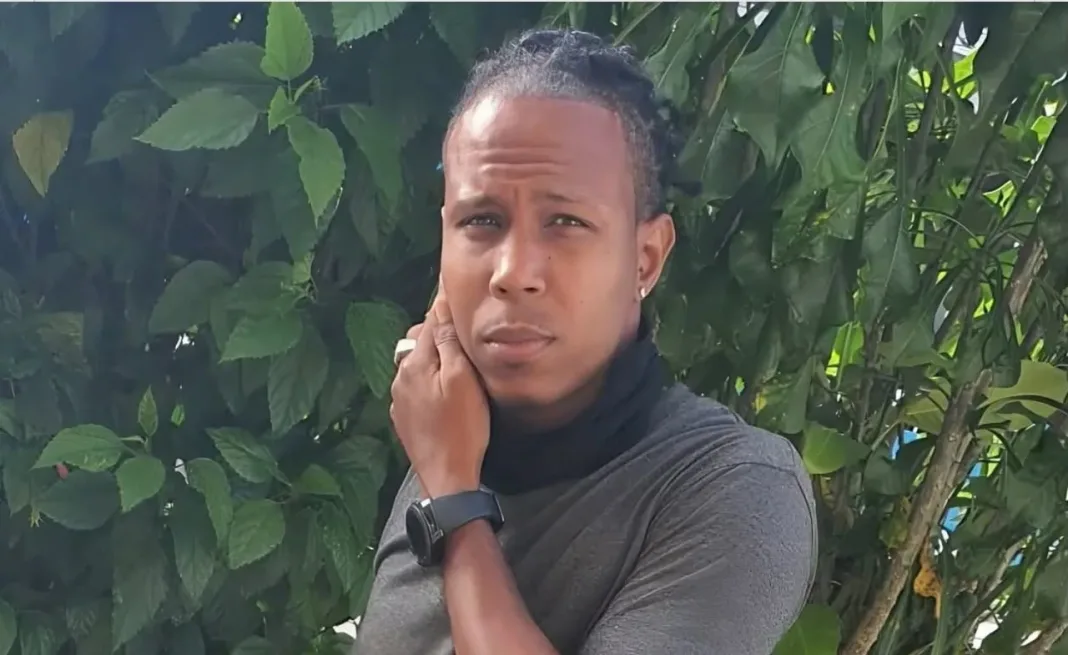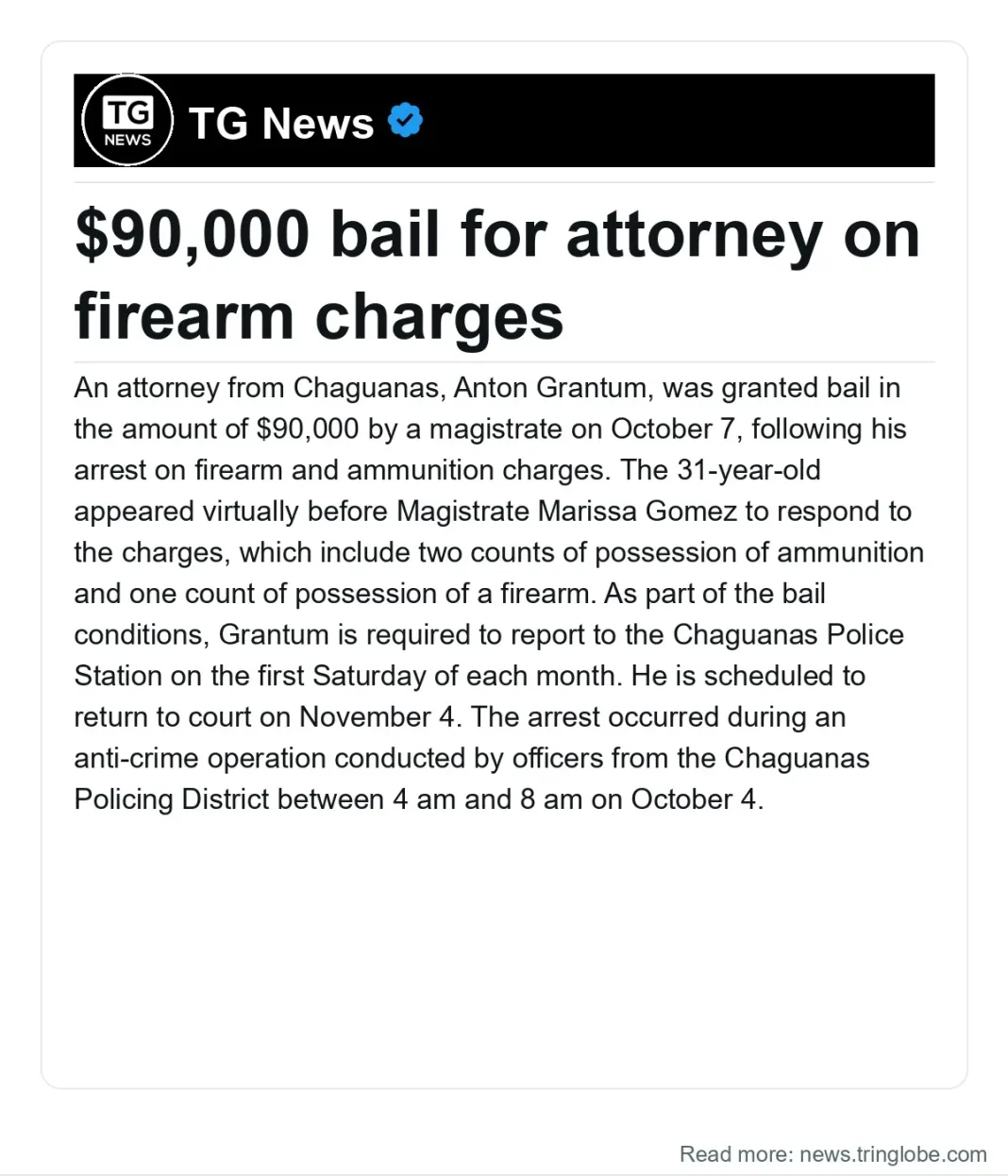This report covers trinidad tobago: debate treatment with key details and context.
This report covers trinidad tobago: debate treatment with key details and context.
Recent comments from Trinidad and Tobago’s Homeland Security Minister Roger Alexander have sparked a debate regarding the treatment of child offenders in the justice system. Minister Alexander suggested that some minors may need to be tried as adults based on their actions, a statement that has drawn criticism from various experts and child rights advocates.
Critics argue that this approach could lead to serious consequences for minors, including exposure to adult criminal environments that could hinder rehabilitation efforts and violate both domestic and international child protection laws. A recent High Court ruling highlighted the potential dangers of such policies, awarding over $3 million in compensation to two siblings who were detained in adult prisons despite being charged as minors. The court found that their rights were violated due to inhumane conditions and lack of educational services.
trinidad tobago: debate treatment: key developments so far.
Experts, including criminologist Darius Figuera, warn that placing minors in adult facilities can lead to increased recidivism and psychological trauma, as they are exposed to hardened criminals and violent cultures. The Children Act of 2012 defines a child as anyone under 18 and mandates special protections for minors. Critics emphasize that trying children as adults could violate this law and the state’s constitutional obligations.
Advocates for child rights argue that addressing the root causes of youth crime, such as trauma and poverty, is more effective than punitive measures. They suggest that increased investment in support services, including mental health resources and community programs, is essential to prevent criminalization and promote rehabilitation for young offenders.
In light of these discussions, various stakeholders are calling for a reevaluation of the justice system’s approach to minors. They stress the importance of creating an environment that fosters rehabilitation rather than punishment. The implications of trying minors as adults could have long-lasting effects not only on the individuals involved but also on society as a whole.
As the debate continues, it remains to be seen how policymakers will respond to the concerns raised by experts and advocates. The conversation around the treatment of child offenders is critical, as it touches on fundamental issues of justice, human rights, and the future of young individuals in Trinidad and Tobago.
In conclusion, the issue of whether to try minors as adults is complex and multifaceted. It raises questions about the effectiveness of the justice system, the protection of children’s rights, and the broader societal implications of such decisions. Stakeholders are urged to consider the long-term consequences of their policies and to prioritize the well-being and rehabilitation of young offenders.


